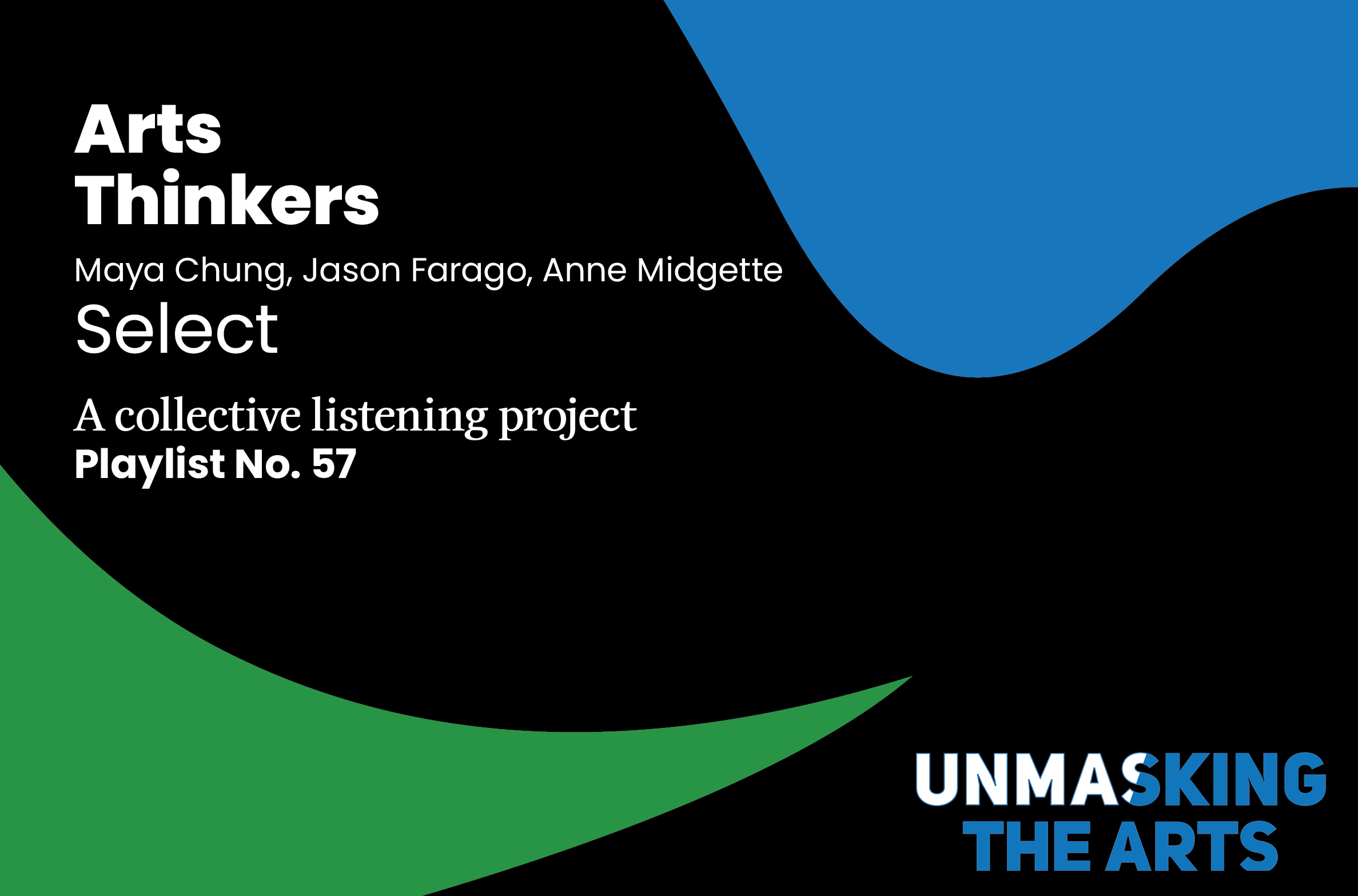Welcome to our 2024-2025 season!
Collective Listening Project
Arts Thinkers Maya Chung, Jason Farago, & Anne Midgette Select
Playlist No. 57
About the Playlist
May 20, 2021

New York Review of Books associate editor Maya Chung, New York Times critic Jason Farago, and music journalist Anne Midgette are some of the most influential voices shaping our cultural landscape. Their conversation with host Helga Davis in our new streaming conversation series, Unmasking the Arts: Looking to the Future, positioned the pandemic’s impact on the arts within the context of an already prevalent “arts crisis.” So what has their own experience of music been throughout the pandemic? Find out in the latest installment of our Collective Listening Project in a playlist featuring some of the tracks that have formed their pandemic listening.
ANNE MIDGETTE
DORA PEJAČEVIČ “Der Einsamste” Op. 53, No. 3, text by Friedrich Nietzsche
Ingeborg Danz, mezzo soprano and Cord Garben, piano
It sounds like Strauss, it sounds like Mahler, but it’s Dora Pejačević, a fabulous and underrated Croatian composer who lived in the early 20th century and pursued the late-Romantic idiom in her own particular manner. Her Symphony in F-sharp Minor has become a touchstone for me in the last couple of years; this much shorter song, “The Loneliest [person],” has particular pandemic resonance since I chose it as part of the soundtrack to a video I made for a friend’s art project early in the shutdown. The text juxtaposes the peace of the landscape in the late-afternoon light with brooding inner restlessness and impatience, which seemed to me to fit the pandemic mood to a T.
JOEL THOMPSON “The Seven Last Words of the Unarmed”
University of Michigan Men’s Glee Club, Eugene Rogers, conductor
In the summer of Black Lives Matter, this searing, poignant and lyrical setting of the final words of seven Black men killed by police hit audiences right in the heart. Thompson writes powerfully for chorus and orchestra, and last year performing arts organizations around the country gave moving presentations of this all-too-timely work, a kind of contemporary Requiem for senseless death.
EDUARD RESATSCH “Reflections of Hope”
Bamberger Symphony
As the pandemic began to stretch into months, a whole music-video genre emerged of orchestras and opera companies offering greatest hits on Zoom, with their musicians individually recording segments to a click-track that were then pasted together to appear in a grid onscreen. Rather than offering yet another Beethoven Ninth or “Bolero” (Ravel), the Bamberg Symphony took this genre to the next level by commissioning a composer who happens to be a member of the orchestra to write a new work that specifically responded to Covid, and creating a video that was actually about the shutdown. It was a great demonstration of how to create so-called classical music that speaks to a contemporary audience with urgency and vitality. WATCH ON YOUTUBE>
Honorable mention in this category: the Juilliard School’s “Bolero” video involved the entire school, and a lot of notable alumni, in an exuberant reinterpretation of this familiar work in which the score itself came to symbolize both the restrictions of the pandemic and a way to transcend those restrictions. WATCH ON YOUTUBE>
JASON FARAGO
CLARA LUCIANI Sainte-Victoire
The album that got me through lockdown was Sainte-Victoire by the French singer-songwriter Clara Luciani, which I had on repeat all through March and April. Above all I found myself relying on her song “Les fleurs,” a slow-burning single (with a beautiful trumpet and saxophone line) about what keeps us sane in days—or years—of chaos and disappointment. She’s the real deal; here’s my favorite live performance: WATCH ON YOUTUBE>
MAYA CHUNG
ROBERT SCHUMANN Dichterliebe, Op. 48
In April I walked past the corner of 62nd and Broadway and caught the baritone Sidney Outlaw and pianist Warren Jones performing a selection from Schumann’s Dichterliebe. This was the full program of the concert, which was part of the Kaufman Music Center’s “Musical Storefronts” series. The performers were inside the building, behind glass, and the music was amplified so passersby could hear and watch from outside—pretty cool! [As this piece has not been recorded by Mr. Outlaw, please enjoy the Spotify recording by legendary baritone Dietrich Fischer-Dieskau.]




